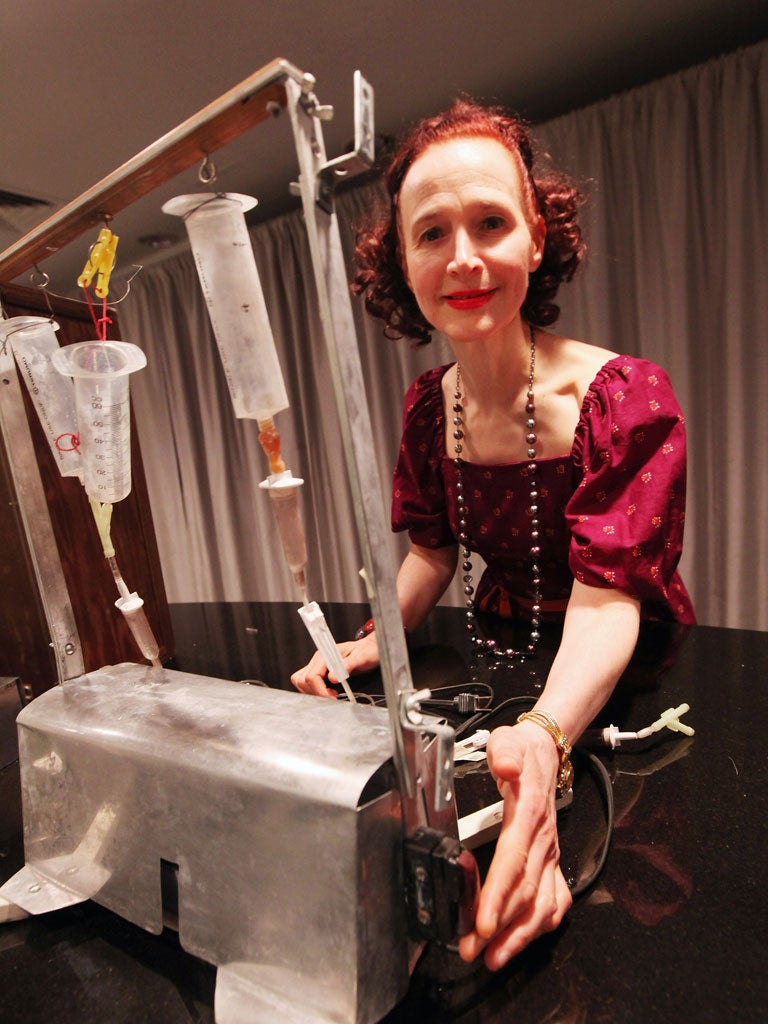Dr Death suicide machine to make auction room killing

They may never have known Jack Kevorkian personally, but admirers with deep pockets and some morbid persuasions were last night hoping to buy everything from his hat and cardigan, to the rickety home-made device he created to humanely kill people.
The family of the late Jack Kevorkian, the controversial pathologist named "Dr Death" for helping dozens of terminally-ill patients take their own lives, aimed to sell some of his personal effects yesterday at an auction.
Among items on sale at the New York Institute of Technology were Mr Kevorkian's driving licence and some of his plastic pill bottles.
But the star lot – expected to fetch between $200,000 (£124,000) and $300,000 – was the "Thanatron" machine he designed for assisting suicide.
Clients would hook themselves up to the device – which contained three syringes and several tubes – take a deep breath, and press an electric switch to administer a lethal injection that would kill them in two to four minutes. The machine helped Mr Kevorkian oversee 130-odd suicides, turning him into an international talking point and hero of the "right-to-die" movement.
"My uncle asked every patient, over and over again, 'do you really want to do this? There is no stop button'," said his niece and heir Ava Janus. She said that the word Thanatron came from combining the Greek words for "death" and "machine", adding that the method was "the least painful way to die".
Mr Kevorkian, who died in June at the age of 83, presided over his first assisted suicide in 1990, when he injected lethal drugs into an Alzheimer's patient in the back of a Volkswagen van.
He spent the ensuing 20 years in and out of court. Legal representatives ensured that his first three prosecutions ended in acquittals and the fourth resulted in a mistrial. His luck ran out in 1999, when he received a 10 to 25-year sentence for second-degree murder.
He was freed in 2007 on condition he did not not assist in more suicides – a promise that he seems to have kept.
Join our commenting forum
Join thought-provoking conversations, follow other Independent readers and see their replies
Comments
Bookmark popover
Removed from bookmarks